-
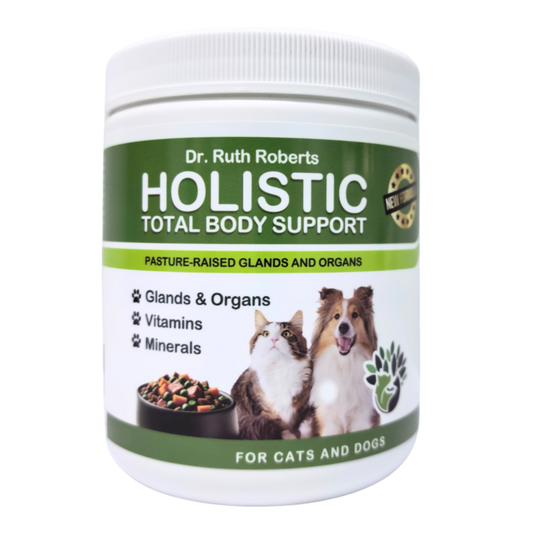
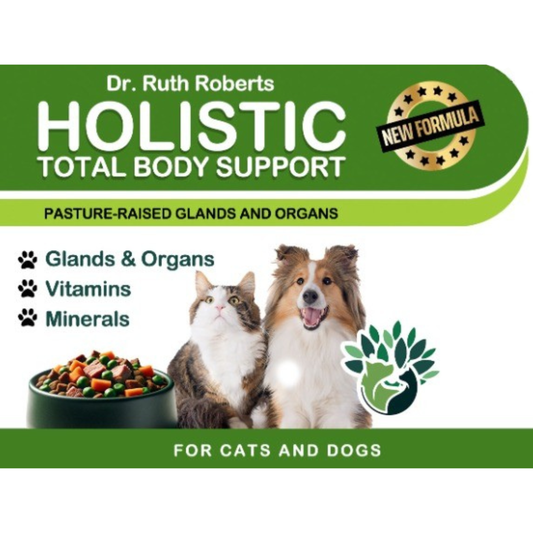
Holistic Total Body Support – Multivitamin & Glandular Support for Dogs and Cats
Holistic Total Body Support – Multivitamin & Glandular Support for Dogs and Cats
Vendor:Dr. Ruth Roberts(42)Regular price $64.00 USDRegular priceUnit price per$64.00 USDSale price $64.00 USDHolistic Total Body Support formulated by Dr. Ruth Roberts is a daily multivitamin for dogs and cats, designed to complement a variety of feeding routines—including home-cooked diet. This powdered blend provides a wide range of essential vitamins, minerals, amino acids, and organ-based ingredients (known as glandular supplement), including calcium citrate for dogs and cats as part of its balanced formula. This versatile multivitamin is often selected by pet parents seeking a nutritional found...
-

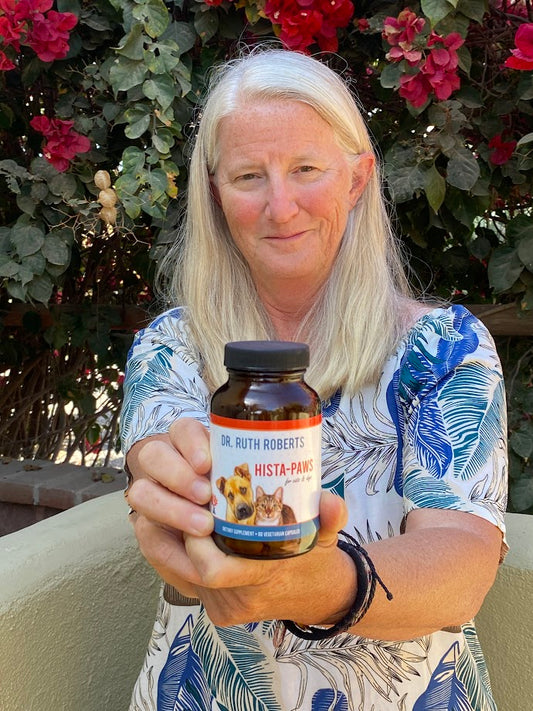
Hista Paws – with Quercetin for Dogs and Cats
Hista Paws – with Quercetin for Dogs and Cats
Vendor:Dr. Ruth Roberts(42)Regular price $49.99 USDRegular priceUnit price perHista Paws is a gentle, plant-based formula made with naturally sourced ingredients like Quercetin and Nettles. Designed for both dogs and cats, it’s a popular choice among pet parents looking for natural ways to support their companions—especially during times of seasonal or environmental changes. Quercetin for dogs is a well-known plant compound found in many fruits and vegetables, while Nettles is a time-honored herb used in traditional botanical blends. Together, they offer a clean, simpl...
-

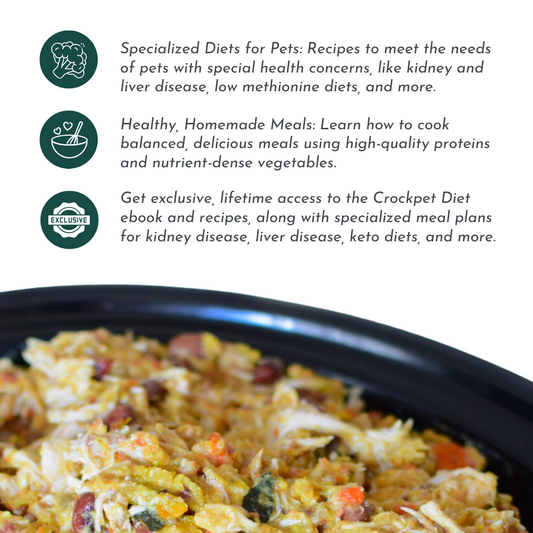
The Original Crockpet Diet™ Ebook and Recipes
The Original Crockpet Diet™ Ebook and Recipes
Vendor:Dr. Ruth's Courses(42)Regular price $49.00 USDRegular priceUnit price per$97.00 USDSale price $49.00 USDIgnite the Chef in You for a Healthier, Happier Pet Are you tired of commercial pet food options that leave you guessing about what's really in your fur baby's bowl? Take control of your pet's nutrition with our comprehensive self-paced course! What You'll Learn🌟 TOCPD Cooking Essentials: Master the art of crafting balanced, nutritious homemade meals for your pets. Discover rotation diet templates tailored for both cats and dogs, ensuring a well-rounded diet. 🐶 TOCPD For Dogs: From succulent...
Sale -
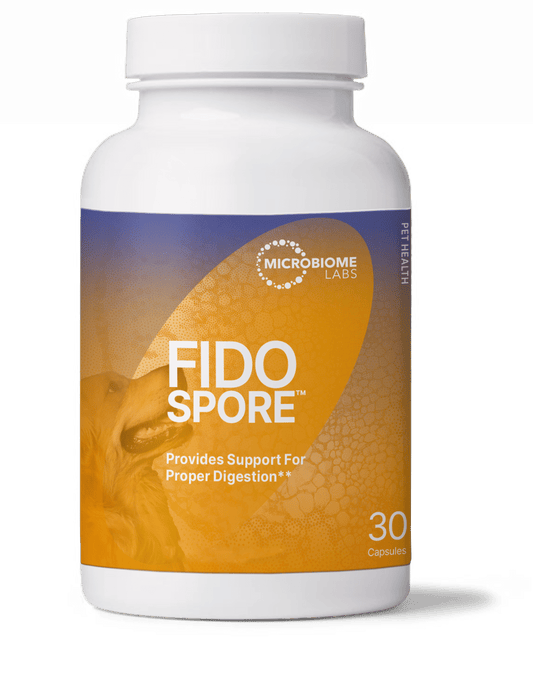

Fidospore by MicroBiome Labs
Fidospore by MicroBiome Labs
Vendor:Microbiome Labs(42)Regular price $44.87 USDRegular priceUnit price per$44.87 USDSale price $44.87 USDFidoSpore™ features a combination of carefully selected probiotic strains, including Bacillus subtilis HU58, Bacillus licheniformis (SL-307), and Pediococcus acidilactici. These spore-forming and lactic acid-producing bacteria are commonly used in pet nutrition and are known for their stability and resilience in various environments. The formula is enhanced with defatted, grass-fed beef liver to offer a savory aroma and flavor that many dogs enjoy. FidoSpore™ can be added to your dog’s daily ...
-
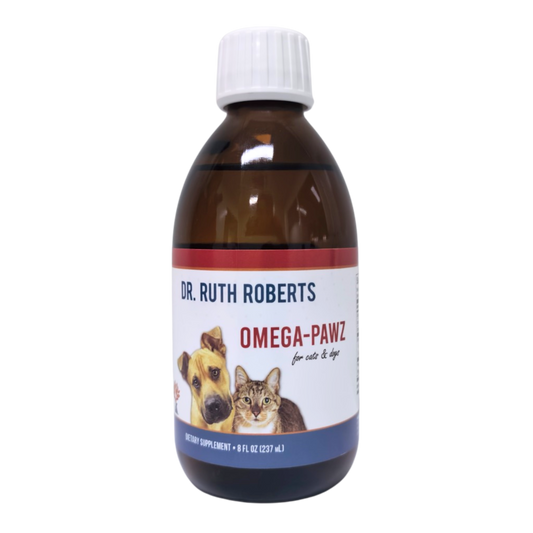
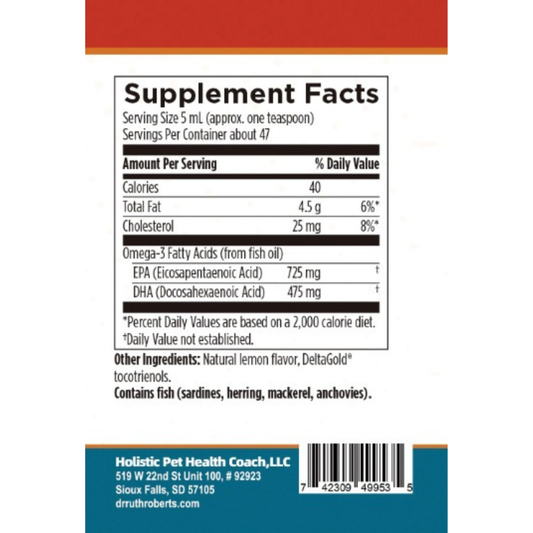
Omega Pawz - Liquid Omega 3 Oil for Dogs and Cats
Omega Pawz - Liquid Omega 3 Oil for Dogs and Cats
Vendor:Dr. Ruth Roberts(42)Regular price $39.00 USDRegular priceUnit price perOmega Pawz by Dr. Ruth Roberts is a liquid omega 3 oil for dogs and cats, thoughtfully made with quality fish oil to complement your pet’s daily feeding routine. This easy-to-use formula includes EPA and DHA, two well-known omega-3 fatty acids found in marine sources. Whether you're looking for omega 3 oil for dogs to include as part of a regular rotation or exploring omega 3 oil for cats for variety in their diet, Omega Pawz offers a simple, pet-friendly option. The light lemon flavor helps ...
-
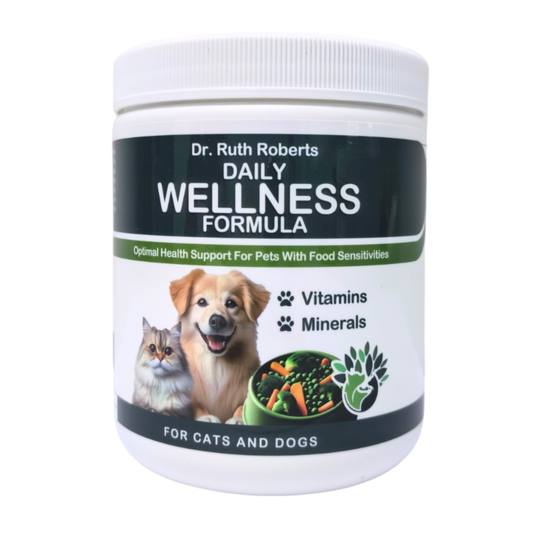
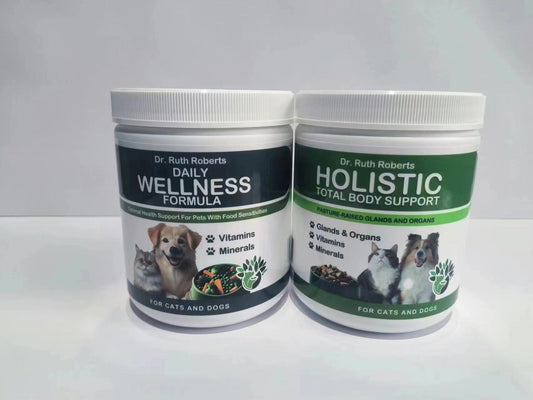
Pet's Daily Wellness Formula - For Pets With Pork/Beef Allergy
Pet's Daily Wellness Formula - For Pets With Pork/Beef Allergy
Vendor:Dr. Ruth Roberts(42)Regular price $54.00 USDRegular priceUnit price per$128.00 USDSale price $54.00 USDPet’s Daily Wellness Formula formulated by Dr. Ruth Roberts is a thoughtfully crafted multivitamin for dogs and cats, designed as a convenient daily addition to your pet’s feeding routine. This formula contains a full spectrum of vitamins, minerals, amino acids, and naturally sourced ingredients—including calcium citrate for dogs—to help fill common nutritional gaps. It’s especially well-suited for pets with dietary sensitivities, as it’s free of glandular ingredients like beef or pork organs...
Sale -

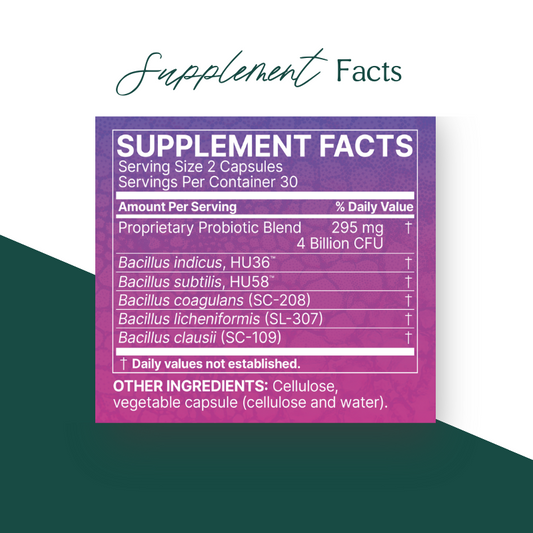
MegaSporeBiotic™ - Probiotic Supplement for Dogs and Cats
MegaSporeBiotic™ - Probiotic Supplement for Dogs and Cats
Vendor:Microbiome Labs(42)Regular price $64.95 USDRegular priceUnit price perMegaSporeBiotic contains a blend of five spore-forming Bacillus strains. These spore-based Probiotics are naturally resistant to stomach acid, which may help them reach the intestines, where they can support the balance of gut bacteria. The spore-based formula may help maintain microbial diversity in the gut, which plays an important role in overall health. This supplement does not require refrigeration, making it a convenient option for daily use. Usage Information: It is recommended to cons...
-
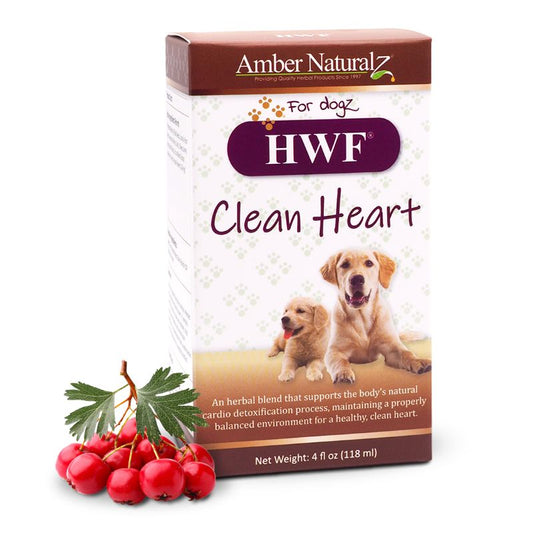

HWF® Clean Heart Supplement for Dogs
HWF® Clean Heart Supplement for Dogs
Vendor:Amber Naturalz(42)Regular price $45.97 USDRegular priceUnit price perHWF® Clean Heart Supplement for Dogs is a natural wellness supplement designed to support your pet’s normal cardiovascular function and overall health. Made with carefully selected, naturally sourced ingredients, this formula encourages balanced wellness and supports your dog’s active lifestyle. Key Benefits: Heart Function Support: Helps maintain normal heart function and healthy circulation, contributing to your dog’s overall vitality. Natural Wellness Support: Designed to support your d...
LET'S LEARN MORE ABOUT
Heart and Cardiovascular Health in Pets
Common Causes of Heart and Cardiovascular Issues in Pets
Common Symptoms of Heart Health Issues in Pets
Heart Health Support Strategies
Talk to Us
If you need help with starting up the course or getting access to the recipes and videos, please don't hesitate to contact us via call/text at +213 394 2923 / email drruthroberts@drruthroberts.com.



















